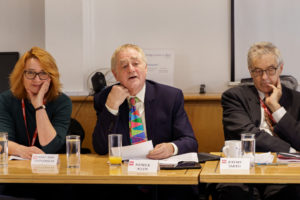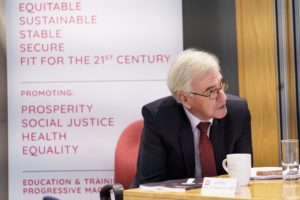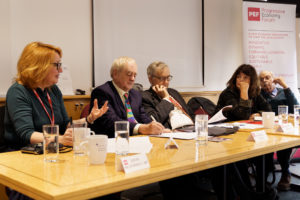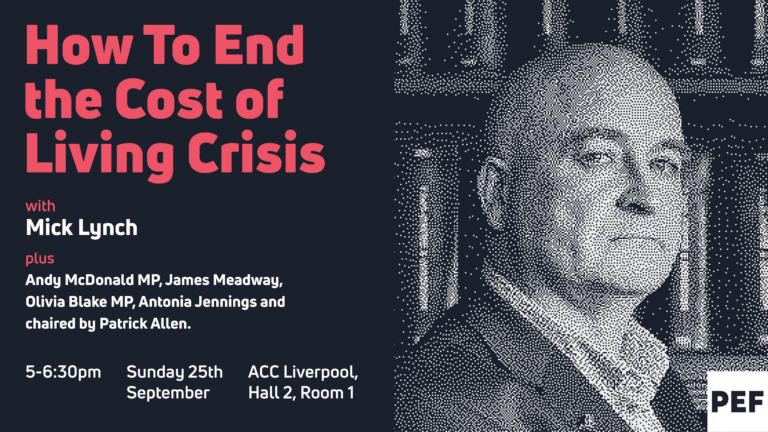On 23rd October, PEF launched our new report on the economic and political implications of Brexit – looking at the background of the Brexit vote, its economic impact to date, the UK’s trading relationships and the UK’s economic performance since joining. The report was commissioned by PEF and written by Jeremy Smith. The launch took place with a panel which included the Shadow Chancellor John McDonnell – who welcomed the report as an “excellent summary” of the issues around Brexit. Also on the panel were Professor Mary Kaldor, LSE; Dr Mary-Ann Stephenson, Women’s Budget Group and Professor John Weeks, PEF Council Coordinator. The meeting was introduced and chaired by PEF’s Chair, Patrick Allen.
The key findings from the report’s analysis are:
- The majority of those polled at the time of the referendum – 52% thought that the UK would be better off economically if we remained in the EU.
- The EU has been a force for good – a leader in environmental renewable energy and climate change policy and action. It has strongly developed women’s rights and created important new workers’ rights.
- During the whole period of the UK’s membership of the European Union since 1973, the annual increase in real GDP is 2.2% – greater than all other European countries other than the Netherlands.
- The cumulative impact of Brexit since the date of the referendum is a loss of £35 billion in the economy.
- There is no reasonable forecast scenario in which the UK is economically better off by leaving the EU. The FTA deal proposed will cause loss of between 4.9% and 12.5% of GDP over 15 yrs. (UK Government figure 4.9%-6.2%)
- Trade with the EU remains far greater and more important than with any non-EU country. It is fanciful to think that increased trade with the USA would offset the loss of trade with the EU caused by the imposition of friction and tariffs.
- It is inevitable that if the current deal goes through, the government will seek to deregulate the UK economy in order to promote trade with the USA. This will cause a significant loss to the rights of workers and environmental and consumer protections.
Professor Mary Kaldor (National committee, Another Europe is Possible) argued that too much current economic analysis is based on an existing economic model which is defunct and in the process of being replaced – stating that we need to see the EU in a new, positive way.
Dr Mary-Ann Stephenson (Director, Women’s Budget Group) highlighted the potential consequences of Brexit for women, and Professor John Weeks (Council Coordinator, PEF) considered that leaving the EU (which is itself changing fast) was ‘bad policy’ for the UK, especially given the UK’s opt-outs. You can read the report here.
You can find the full album of photos from the event on our Flickr here.












